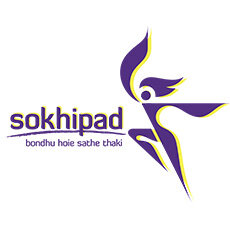Sokhipad
Sokhipad
Joined Business Call to Action (BCtA) in June 2019 by pledging to create awareness about menstrual hygiene management among 100,000 low-income women throughout Bangladesh by 2021.
BCTA MEMBERSHIP STATUS
Alumni
SECTOR
Consumer Goods
HEADQUARTERS
Bangladesh
REGION OF INITIATIVE
Asia & Pacific
SDG CONTRIBUTION
RELATED NEWS
Menstrual hygiene manufacturer Sokhipad has joined Business Call to Action (BCtA) in June 2019 by pledging to create awareness about menstrual hygiene management among 100,000 low-income women throughout Bangladesh by 2021. The company also commits to delivering sanitary pads to 720,000 low-income women in Bangladesh by 2021.
In Bangladesh, awareness of and access to menstrual hygiene products is limited. A lack of information about effective menstrual hygiene management among low-income communities keeps women and girls from buying sanitary pads. Even where awareness does exist, the long-standing social taboo on sanitary pads in Bangladesh makes it difficult for women to buy them from shops, where the seller is usually a man.
Women working at the Sokhipad factory in Bangladesh
Awareness of safe and sanitary menstrual hygiene practices and access to affordable menstrual hygiene products gives women the dignity to become active and productive members of society. Bangladeshi company Sokhipad is empowering women and girls through its innovative sanitary pad awareness-raising and delivery efforts.
Sokhipad’s inclusive business model is innovative in two ways. Firstly, rather than advertising for their product, Sokhipad reaches its target customers through community awareness campaigns, leading to lower costs for the company and, more importantly, generating universal demand for an important health product regardless of brand. Secondly, Sokhipad sanitary pads are delivered directly to the customers’ hands through home visits, parent meetings at school, meetings of women in the village known as uthan boithoks, and elsewhere.
The company has established partnerships with leading NGOs in the country. These NGOs have field staff in all 64 districts of Bangladesh. Sokhipad follows a Training of Trainer (ToT) model meaning it provides training to these field staff who then conduct awareness activities in their respective regions. These workers also act as sales agents for Sokhipad and receive a commission for every package of Sokhipad sold.
“Using sanitary pads is a longstanding taboo in Bangladeshi society. With time, the economically advantaged have risen above this taboo, but the economically disadvantaged all too often still use unhygienic solutions like rags. By selling low-cost pads and running awareness campaigns, Sokhipad is increasing the uptake of sanitary pad use, contributing to better health of women and positively impacting SDG 3 (Health), SDG 5 (Gender Equality) and SDG 6 (Water & Sanitation) in the process," says Sokhipad’s CEO Muhammad Ariful Forquan.




